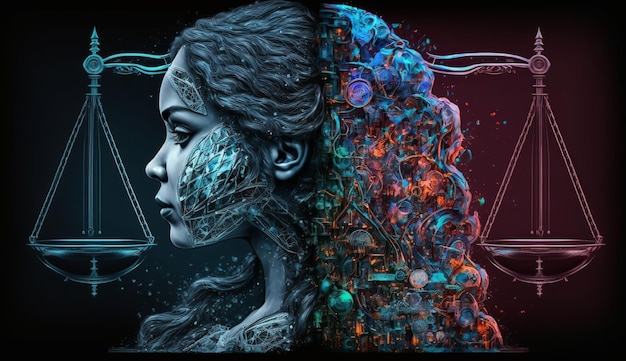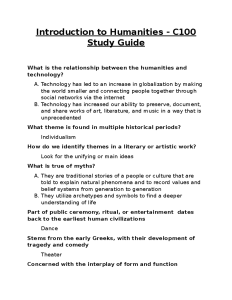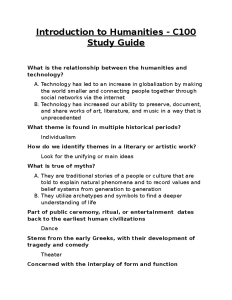AI and social justice are increasingly intertwined in today’s digital landscape, prompting critical discussions about how technology affects our societal values. As noted by Ruha Benjamin, a prominent sociologist, the future of AI doesn’t have to lean towards dystopia; it can embody the ideals of equity and fairness instead. This dialogue invites us to scrutinize the impacts of technology and society on marginalized communities and to recognize the responsibility we hold in guiding these advancements towards human values. Benjamin argues that while AI advocates praise innovative tools as progressive, many of these technologies perpetuate systemic oppression, leading to harmful outcomes, such as wrongful arrests or inequitable healthcare distribution. Ultimately, fostering a just relationship between AI and social justice involves reimagining technological possibilities through the lens of the arts and humanities, challenging us to envision a future that serves the collective good rather than the interests of a select few.
The intersection of artificial intelligence and equitable treatment is becoming a crucial area of exploration in our rapidly evolving technological era. Scholars like Ruha Benjamin emphasize the importance of examining how advancements in AI can either support or hinder social justice initiatives. This discourse calls for a broader understanding of the implications that these tools have on society, particularly concerning the values we hold dear. As we endeavor to craft a future shaped by human-centric technology, we must also consider alternative approaches that prioritize community welfare over mere efficiency. By engaging in thoughtful inquiry and creative imagination, we can pave the way for innovative solutions that genuinely uplift and empower all members of society.
The Intersection of AI and Social Justice
Ruha Benjamin’s insights challenge us to reconsider the narratives surrounding artificial intelligence and its implications for social justice. As she points out, while AI is often heralded as a transformative technology promising efficiency and progress, it can perpetuate systemic inequalities. The technology can exacerbate the very issues it seeks to solve, particularly for marginalized communities, leading us to question who truly benefits from AI advancements. Benjamin warns that presenting AI as a neutral or purely mathematical tool overlooks the crucial moral dimensions of the decisions being made, urging a critical look at who holds power in shaping these technologies.
Benjamin’s emphasis on the need for diverse voices in AI discourse resonates deeply in today’s technologically driven society. By advocating for a broader inclusion of perspectives, especially from the arts and humanities, she highlights the importance of embedding human values into technological development. This approach does not merely critique existing frameworks but envisions a future where AI serves the collective good, rather than the interests of a privileged few. Her call to action is a reminder that innovation must align with social responsibility, pushing for a future where technology uplifts all members of society.
Redefining the Future of AI
Ruha Benjamin invites us to envision a future with AI that diverges from the hyper-focus on elite innovators and dystopian narratives. Rather than succumbing to fear of an AI-driven apocalypse, she challenges us to think creatively about what technology could achieve if designed with societal needs in mind. By framing imaginative inquiry as a necessary counterpart to technical expertise, Benjamin encourages a reexamination of what progress means in a society increasingly reliant on complex algorithms. This perspective insists that technological advancements should harmonize with human values, integrating lessons learned from the past to foster equitable futures.
Moreover, Benjamin’s critique of the glorification of superintelligence and the obsession with futuristic escapes leads to a crucial reevaluation of current priorities. She points out that while society celebrates groundbreaking technologies, essential public goods such as housing and transportation are sidelined. This imbalance prompts a necessary discourse on resource allocation and societal values, where we must ask ourselves whether the future we’re building is truly representative of collective aspirations or merely a playground for the wealthy. The challenge lies in steering the conversation toward solutions that balance technological possibilities with the fundamental needs of all individuals.
The Role of Arts and Humanities in Technology
In her recent lectures, Ruha Benjamin stresses the essential role that arts and humanities play in shaping our technological landscape. These fields not only enrich our understanding of the human condition but also cultivate the creativity and critical thought necessary for addressing complex societal issues. Benjamin argues that as we forge ahead into an AI-powered future, we must elevate these disciplines alongside technical knowledge to ensure that our innovations respond to the lived experiences of diverse communities. The arts provide vital insights into human values, allowing us to interrogate the ethical implications of our technological choices.
Furthermore, Benjamin posits that the arts can serve as a powerful vehicle for reimagining the narratives we associate with technology. By encouraging artistic expression, we open avenues for innovation that transcend traditional boundaries of thought. It invites a reinvention of our societal dialogue—fostering a culture of empathy that counters the automated, often impersonal decisions that can emerge from AI systems. By integrating creative inquiry into discussions about technology, we can challenge the status quo and construct a future that prioritizes justice, equity, and human flourishing.
The Dangers of Technological Determinism
Ruha Benjamin’s critique of technological determinism serves as a warning against blindly accepting the narratives crafted by tech elites. She argues that when we view technology as an autonomous force shaping society without recognizing our collective role in its development, we risk ceding control over our futures. This perspective is particularly concerning in discussions surrounding AI, where oversimplified ideas about ‘efficiency’ can mask deep-seated inequalities perpetuated by algorithmic biases. By concentrating solely on the capabilities of technology, we neglect the societal structures that influence how these innovations are applied.
Benjamin’s assertion that AI should not be mistaken for a panacea prompts a reevaluation of our reliance on technology to address complex social challenges. It becomes essential to interrogate the principles guiding technological advancement and whether they align with our collective humanistic values. Instead of offering passively accepted solutions, we must actively engage in shaping AI to reflect our shared aspirations for a just and equitable society. This calls for a participatory approach that brings together technologists, policymakers, artists, and communities to collaboratively design the future of technology.
Creative Resistance Against AI Misuse
In her compelling discourse, Ruha Benjamin advocates for creative resistance against the misuse of artificial intelligence. This concept urges individuals to not only critique current technological applications but to imagine and implement alternatives that serve the community good. Recognizing that AI is often wielded as a tool of oppression—facilitating surveillance and exacerbating inequalities—Benjamin emphasizes the power of collective creativity to envision systems that prioritize care over control. This creative resistance is crucial as it allows communities to reclaim agency in a landscape dominated by powerful tech entities.
Artistic expression, social commentary, and grassroots advocacy become pivotal in this movement, highlighting the innovative ways that individuals can resist oppressive technologies. By channeling their creativity, communities can articulate their visions for technology that aligns with their values, advocating for solutions that work for everyone, not just the elite. Benjamin asserts that, through this process, we can dismantle harmful paradigms and recover a sense of hope—envisioning not just a technologically advanced future, but one that upholds the dignity and rights of all individuals.
The Importance of Collective Imagination
Ruha Benjamin’s emphasis on the limitless possibilities of collective imagination invites us to engage with the potential futures of AI. By fostering an environment where diverse voices can contribute to the dialogue surrounding technology, we unlock the capacity to design more inclusive systems. This collective imagination empowers communities to brainstorm solutions that cater to their unique contexts, transcending the limitations imposed by narrow, exceptionalist visions often promoted by tech innovators. In doing so, we reframe our expectations of what technology can achieve when built with a holistic understanding of societal needs.
Benjamin encourages us to transcend mere critique and step into the realm of creativity, actively envisioning alternatives that promote equity and justice. This crucial process of imagining ‘now what?’ extends beyond technical improvements, asking us to consider the broader implications of our innovations on community life. By leveraging the power of imagination, we can constructively engage in conversations about the trajectories of AI, aiming for technology that genuinely reflects human values and addresses the complex issues we face as a society.
Critiquing AI’s Mathematical Fallacy
The call by Ruha Benjamin to critique the perceived neutrality of AI’s mathematical foundations invites a necessary discussion on the shortcomings of algorithm-driven decision-making. She highlights the pitfalls of relying solely on computational analysis without contextual understanding—pointing out that an insistence on objectivity can obscure the biases inherent in both data collection and algorithm design. This mathematical fallacy perpetuates the normalization of inequalities, particularly affecting the marginalized groups that already struggle against systemic injustices.
Benjamin illustrates the dangers of affording technology a privileged status in our decision-making processes, emphasizing that mathematical models, no matter how sophisticated, do not replace the emotional and ethical considerations that are vital in shaping humane outcomes. As such, there is an urgent need for a holistic approach that incorporates historical and social contexts into technological evaluations. By confronting these biases head-on, we are better equipped to mobilize technology in ways that minimize harm and promote societal well-being.
Embracing a Holistic Approach to Technological Development
In pushing for a holistic approach to technological development, Ruha Benjamin advocates for an integrative framework that combines technology with social understanding. This perspective emphasizes that those creating technology must genuinely engage with the social implications and realities they seek to influence. By fostering interdisciplinary collaborations, combining insights from the humanities with technical expertise, we can create more considerate and ethical technological solutions. Benjamin’s vision promotes the idea that human-centered design must play a pivotal role in the development of AI and related technologies.
Embracing a holistic approach requires a shift in the way we conceptualize innovation, recognizing that technological advancements are not isolated events but rather interconnected processes deeply influenced by cultural and societal factors. By understanding the larger ecological sphere of technology and society, we can aspire to develop systems that enhance human welfare rather than undermine it. This strategic alignment of technology with human values can help dismantle existing barriers and construct pathways toward a future that embraces technological progress in a manner that is equitable, just, and sustainable.
Frequently Asked Questions
How does AI impact social justice according to Ruha Benjamin?
Ruha Benjamin argues that AI technologies, often marketed as efficient and progressive, can inadvertently lead to greater oppression for marginalized communities. This phenomenon occurs when algorithmic decision-making reinforces existing biases, making it critical to examine how AI intersects with social justice and human values.
What role do arts and humanities play in shaping the future of AI and social justice?
Ruha Benjamin emphasizes the importance of arts and humanities in decision-making about AI. By integrating creativity and diverse perspectives into the development of AI technologies, we can cultivate a deeper understanding of societal impacts and foster innovative solutions that prioritize social justice.
Why should society question the motivations of tech elites in AI development?
Benjamin cautions against trusting tech elites due to their self-interested motivations, which may overshadow the common good. She suggests that the narratives surrounding AI often promote an altruistic veneer while they detract from equitable solutions for societal challenges related to justice.
How can envisioning a better future integrate social justice with AI?
Envisioning a better future involves reimagining AI in a way that emphasizes collective well-being over technological elitism. Ruha Benjamin calls for a shift from merely mitigating harm to radically rethinking AI systems with social justice principles that dismantle oppressive structures.
What are the implications of algorithmic decision-making on marginalized communities?
Algorithmic decision-making can perpetuate systemic injustices faced by marginalized groups. Ruha Benjamin highlights that relying on mathematical models risks ignoring the historical and social contexts that affect these communities, potentially leading to harmful outcomes.
How does Ruha Benjamin suggest we critique AI in the context of social justice?
Benjamin proposes not just to critique but to creatively envision alternative futures that prioritize human values. By asking ‘Now what?’, she encourages a broader imagination for AI’s role in society that transcends existing limitations and challenges oppressive systems.
Why is it crucial to include diverse knowledge in AI decision-making, as highlighted by Ruha Benjamin?
Including diverse knowledge in AI decision-making is vital because it ensures that technological solutions are informed by a comprehensive understanding of societal complexities. Ruha Benjamin points out that technical expertise alone is insufficient to address the nuanced challenges of social justice.
What challenges does AI pose to social equity, according to recent discussions in social sciences?
AI poses challenges to social equity by reinforcing biases and structural inequalities through its data-driven processes. Scholars like Ruha Benjamin argue that without critical intervention, AI can exacerbate issues such as unequal access to resources, surveillance, and discriminatory practices.
| Key Points | Details |
|---|---|
| Vision for the Future | Ruha Benjamin argues for envisioning a future that avoids dystopian outcomes and questions the motives of tech elites. |
| Critique of AI Technologies | AI presented as beneficial often leads to oppression, with examples including facial recognition and healthcare triage systems. |
| Math vs. Morality | Decisions based solely on algorithms can harm marginalized groups, similar to historical eugenics. |
| Redefining Innovation | Benjamin challenges the focus on advanced tech solutions while neglecting public goods like housing and transit. |
| Call to Action | Emphasizes creativity in addressing societal issues and urges a reimagining beyond current oppressive systems. |
Summary
AI and social justice are deeply interconnected, emphasizing the need for an inclusive vision of the future. Ruha Benjamin, in her Tanner Lectures, urges us to critically assess the narratives surrounding AI technologies and their impacts on marginalized communities. Instead of accepting the dominant paradigm that places trust in tech elites for societal improvements, Benjamin advocates for a co-creative process that involves diverse voices, particularly from the arts and humanities. Understanding the societal implications of technology requires not just technical expertise but a comprehensive grasp of human experiences and histories. By reimagining what innovation looks like, we can seek solutions that prioritize equity and dismantle oppressive structures, leading to a more just world.




